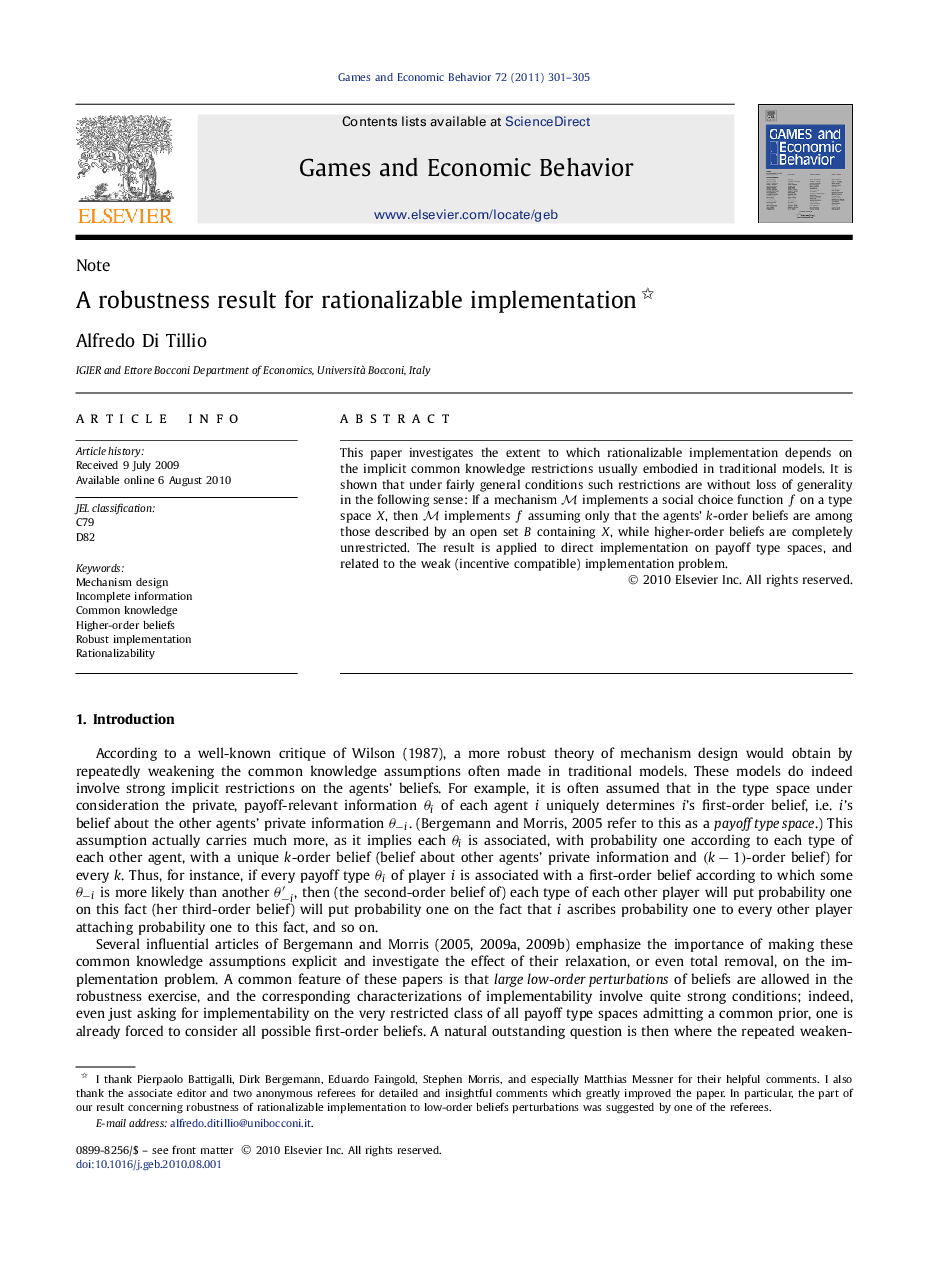| Article ID | Journal | Published Year | Pages | File Type |
|---|---|---|---|---|
| 5072307 | Games and Economic Behavior | 2011 | 5 Pages |
Abstract
This paper investigates the extent to which rationalizable implementation depends on the implicit common knowledge restrictions usually embodied in traditional models. It is shown that under fairly general conditions such restrictions are without loss of generality in the following sense: If a mechanism M implements a social choice function f on a type space X, then M implements f assuming only that the agentsʼ k-order beliefs are among those described by an open set B containing X, while higher-order beliefs are completely unrestricted. The result is applied to direct implementation on payoff type spaces, and related to the weak (incentive compatible) implementation problem.
Keywords
Related Topics
Social Sciences and Humanities
Economics, Econometrics and Finance
Economics and Econometrics
Authors
Alfredo Di Tillio,
